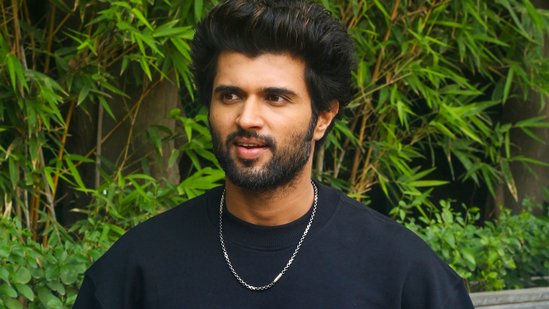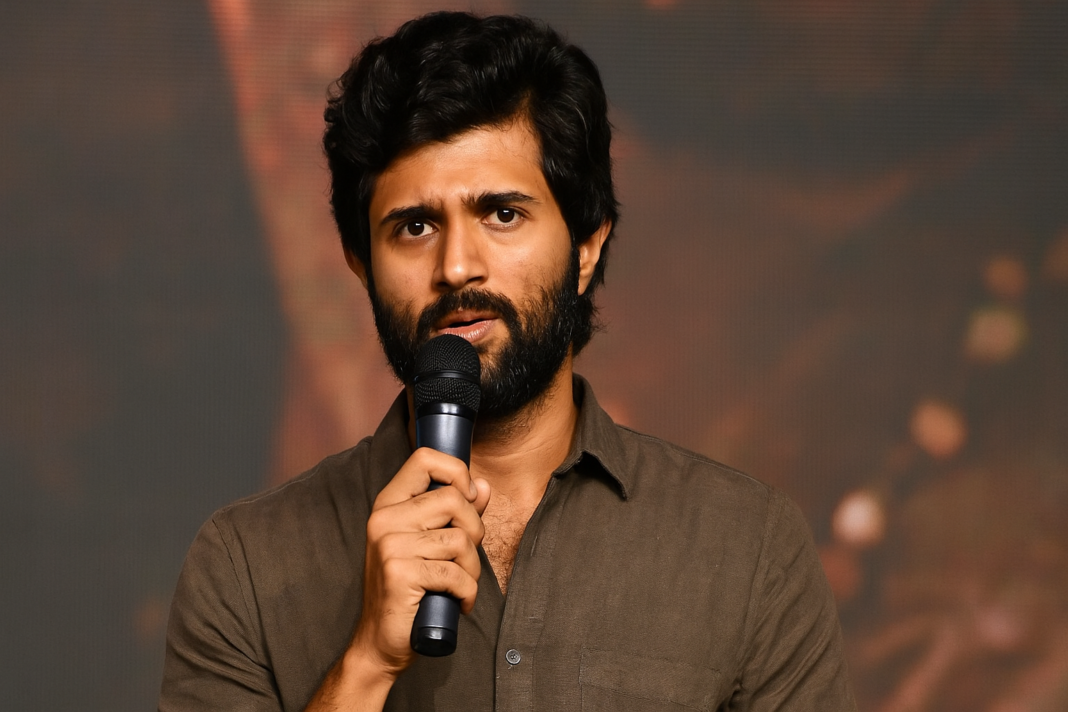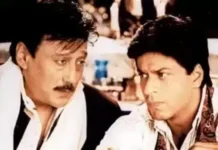
South Indian superstar Vijay Deverakonda has landed in a legal storm after a controversial statement made during the pre-release event of his upcoming film Retro. Known for his charismatic screen presence and bold personality, Vijay now finds himself entangled in a serious controversy that could potentially impact his image and career. A case has been registered against the actor under the Scheduled Castes and Scheduled Tribes (Prevention of Atrocities) Act, more commonly referred to as the SC/ST Act, after a tribal welfare group alleged that his comments during the event were offensive and disrespectful to tribal communities.
The statement, which was intended to be humorous or metaphorical, was quickly labeled as insensitive by several viewers. Video clips of the speech went viral across social media platforms, sparking public outrage and triggering calls for action. What started as a promotional celebration has now turned into a national headline, raising questions about the responsibilities of public figures, the boundaries of free speech, and the legal consequences of caste-related offenses in India.
The Speech That Sparked the Outrage
The event in question was held as a grand promotional celebration for Vijay Deverakonda’s latest film Retro. As is tradition in Telugu cinema, the lead actors and crew members address fans and media, often with passionate, funny, or dramatic speeches meant to build hype around the movie. During his turn on stage, Vijay made a statement that allegedly drew a comparison between tribal people and certain characters in the film.
Although his remarks may not have been made with malicious intent, they were perceived as demeaning and stereotypical, particularly by those belonging to tribal communities. The backlash was swift. Social media exploded with criticism, with hashtags calling for accountability, boycott, and even legal action. Activists and organizations that represent the rights of Scheduled Tribes condemned the comment, terming it an example of casual casteism and calling it a reflection of the entertainment industry’s insensitivity toward marginalized groups.
Legal Complaint and FIR Filed Under SC/ST Act
Following the public uproar, a formal complaint was filed by a tribal welfare organization in Telangana. They alleged that Vijay’s comments amounted to a violation of the SC/ST (Prevention of Atrocities) Act, 1989, which prohibits any kind of verbal abuse, discrimination, or derogatory comments aimed at Scheduled Castes or Scheduled Tribes. The complaint was taken seriously by local authorities, and an FIR (First Information Report) was registered against the actor.
The SC/ST Act is a powerful legal framework in India designed to protect historically oppressed communities from caste-based injustice. Under this act, any insult or humiliation directed at a person belonging to a Scheduled Caste or Tribe in public is a cognizable offense—one that allows the police to register a case and begin an investigation without prior permission from the court. If the case is pursued further and guilt is proven, Vijay could face imprisonment, a fine, or both.
Understanding the SC/ST Act and Its Importance
The Scheduled Castes and Scheduled Tribes (Prevention of Atrocities) Act, passed in 1989, was introduced to protect the dignity and rights of India’s most marginalized communities. It was created as a response to the continuing violence, discrimination, and humiliation faced by Dalits and tribal people. The act ensures that no individual belonging to these communities is subjected to caste-based abuse, physical harm, or social discrimination.
One of the unique aspects of the SC/ST Act is that it does not require proof of intent; even casual or indirect insults that cause emotional harm or reinforce caste hierarchies can be considered violations. This means that public figures, including celebrities, politicians, and influencers, must exercise extra caution while speaking in public spaces.
Vijay Deverakonda’s Silence Raises Eyebrows
As the controversy continues to gain momentum, many people have been waiting for Vijay Deverakonda’s official response. So far, the actor has remained silent, which has only added fuel to the fire. Sources close to the actor have reportedly stated that Vijay is in touch with legal advisors and is considering issuing a public clarification or apology. These sources insist that the actor never meant to insult anyone and that his words were either misunderstood or taken out of context.
However, in the age of social media, silence is often seen as indifference. Critics argue that as a public figure with influence over millions of fans, Vijay should have issued a clarification immediately. His delay is being interpreted by some as a lack of responsibility, while others believe he is simply trying to understand the legal and reputational implications before speaking.
Mixed Reactions from Public and Industry
The incident has deeply divided public opinion. On one hand, there are thousands of fans defending Vijay, saying the controversy is being blown out of proportion. They argue that his statement was taken lightly at the event, and that targeting him under a serious legal act is unnecessary and extreme.
On the other hand, many civil society groups and social media users have condemned the actor’s words, saying that normalizing caste-based remarks under the guise of humor or creativity is unacceptable. The Telugu film industry has largely stayed silent, although a few insiders have privately expressed concern over how cultural insensitivity during promotional events is becoming a frequent issue.
Retro Movie’s Release Now Surrounded by Controversy
The controversy has come at a crucial time for the makers of Retro, a film that was already under the spotlight due to Vijay’s involvement. Initially seen as one of the most anticipated releases of the year, the film is now caught in a media whirlwind. Industry insiders suggest that the marketing campaign might now have to change direction, focusing more on damage control than celebration.
There are also concerns that the controversy could hurt box office performance, especially in regions with significant tribal populations. While controversies sometimes help in building hype, in this case, the negative press could end up overshadowing the film’s actual content.
Cultural Sensitivity and the Responsibilities of Celebrities
This entire episode brings to light the critical importance of cultural awareness and sensitivity, especially for individuals in the public eye. In a country like India, where caste, culture, and identity run deep, a seemingly lighthearted comment can cause real emotional harm. Celebrities, given their influence, must be more mindful of how their words and actions are perceived.
Today’s India is more socially aware than ever before. Conversations about representation, respect, and equality are more mainstream. Audiences are holding their idols accountable, and laws like the SC/ST Act provide a legal backbone to this movement.
Will There Be an Apology or Legal Consequences?
Legal experts believe that the case against Vijay Deverakonda will depend on whether the court finds sufficient evidence of intent or impact. If the actor issues a public apology, it may help in mitigating public anger. However, an apology may not be enough to close the legal proceedings unless the complainant decides to withdraw the case.
If the matter proceeds to court, it could become a landmark case—not just for Vijay, but for how India’s legal system handles celebrity accountability in cases involving caste or tribal identities.
The controversy surrounding Vijay Deverakonda’s remarks at the Retro pre-release event serves as a wakeup call for the Indian entertainment industry. It emphasizes the need for culturally sensitive communication, especially during public promotions and events. With increasing social media scrutiny and stronger legal frameworks, celebrities cannot afford to be careless or dismissive.
This case, whether resolved through legal channels or through public engagement and apology, will remain a significant chapter in the debate on freedom of speech vs. social responsibility. As fans, citizens, and media professionals watch closely, this incident reminds everyone that words matter—and in today’s India, accountability is non-negotiable.


































